US to deploy new intermediate and shorter-range missiles in Asia-Pacific. The American leadership is already working on this issue with its allies in East Asia.. When, if US plans come true, missiles will threaten both China and the DPRK, and Russia.
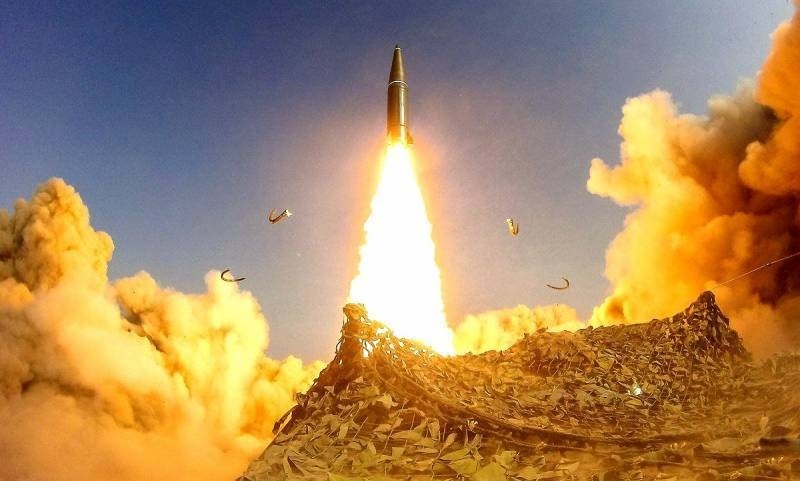
Missiles in East Asia as the new US plan
The need to deploy intermediate and shorter-range missiles in the Pacific Ocean in the United States was discussed almost immediately after the official termination of the INF Treaty. First, the US Ambassador to the Russian Federation John Huntsman gave an interview, in which he spoke about Washington's lack of plans to deploy intermediate and shorter-range missiles in Europe.
maybe, these words of the ambassador are just an attempt to calm Russia down. In the same way, the Americans promised not to expand the North Atlantic alliance., however, in the 1990s - 2000s, practically all the countries of Eastern Europe and three former Soviet republics - Lithuania were included in NATO, Latvia and Estonia. Therefore, Americans should not be trusted.
But, on the other hand, the ambassador may not be cunning. The thing is, that shortly before his interview, newly appointed US Secretary of Defense Mark Esper said, what if medium and shorter-range missiles are deployed somewhere, then we will talk about East Asia. The United States has long been thinking about reorienting to an Asian direction, because at present, the American government views China as almost a more important rival, than Russia - and in the economic, and politically.
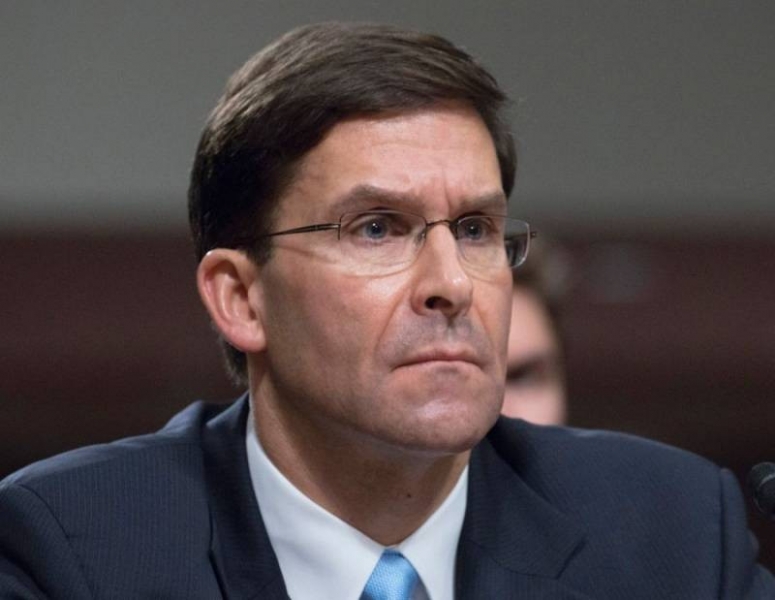
The new head of the Pentagon, Mark Esper
by the way, the deployment of missiles in the Asia-Pacific region allows the United States to confront the three most criticized states at once - China, North Korea and Russia, since all these countries have access to the Pacific. Asia-Pacific is less controlled by Americans, than Europe, and they have much less reliable allies here - only Japan, South Korea da Taiwan. Therefore, the Asian direction is of increasing interest to the Americans in terms of implementing the strategy of "containment" of Russia and China..
The importance of placing missiles in the APR is explained by the fact, that China did not sign the INF Treaty at the time, respectively, and was not limited in the development and deployment of medium and shorter-range missiles, unlike the same USA. So now, when the INF Treaty is terminated, Washington will inevitably want to catch up and create a reliable counterbalance system in East Asia to both China., and Russia.
U.S. allies in the Asia-Pacific region
During the Cold War, East and Southeast Asia were literally divided into spheres of influence. China kept aloof, sponsored numerous Maoist guerrilla movements, who fought throughout the region - in Malaysia, Thailand, in the Philippines, in Burma. The Soviet Union maintained close ties with the DPRK, Vietnam, Laos. The US's orbit of influence included Japan, South Korea, Taiwan, Thailand, Malaysia, Philippines.
Now the layouts in the Asia-Pacific region have changed somewhat. At first, there is Russia, China and the DPRK - these three countries are viewed by the American leadership as direct sources of threats to their interests in the APR.
Secondly, most of the countries of Southeast Asia are now trying to remain neutral. For Thailand, Malaysia, Philippines The Soviet Union posed a danger in the context of its ideological expansion - the elites of these countries mortally feared a repetition of the Vietnamese and Lao scenarios.
Now the "communist threat" has passed and the countries of Southeast Asia are quietly trading and cooperating with Russia., and with the USA, and with China. Except that, Chinese ambitions worry them. Vietnam can be included in the same block of countries., traditionally close to Russia, but having a difficult relationship with China and, surprisingly, establishing good ties with the USA.
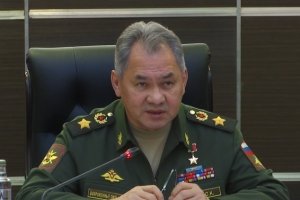
Shoigu called Tu-160 flying to Chukotka planned work
Thirdly, there are several countries that are unambiguous allies of the United States. Japan ranks first among them in importance.. Although the Land of the Rising Sun is not the same, what was it like before World War II, its potential should not be discounted. After all, Japan is a technology giant, and just a strong country with a large population. The second most important ally of the United States - South Korea. It depends on American support against the DPRK and China, has a large and well-armed army.
Japan and South Korea - like Turkey and Greece in Europe: like military and political allies, but constantly put forward various claims to each other, historical grievances, territorial disputes, but most of all - with competition in the global and Asian high-tech markets. Finally, the third clear ally of the United States - Taiwan. Its military potential is lower, than Japan and South Korea, but the island is very significant in the context of the confrontation between the United States and China.
Under Secretary of State for Arms Control and International Security Andrea Thompson recently announced, that Washington is already discussing with its allies in the Asia-Pacific region the possibility of deploying new missiles, directed against China and Russia. The missiles are supposed to be placed on the first line of the Pacific islands.
To deploy missiles in the Asia-Pacific region, the United States will use an iron argument - the need to protect against a potentially dangerous and uncontrolled North Korean regime. But, of course, by no means small and closed North Korea is the main goal of the American containment strategy in the APR. Under the pretext of protecting against North Korea, the Americans will send missiles at Russia and China - there is no doubt about that.
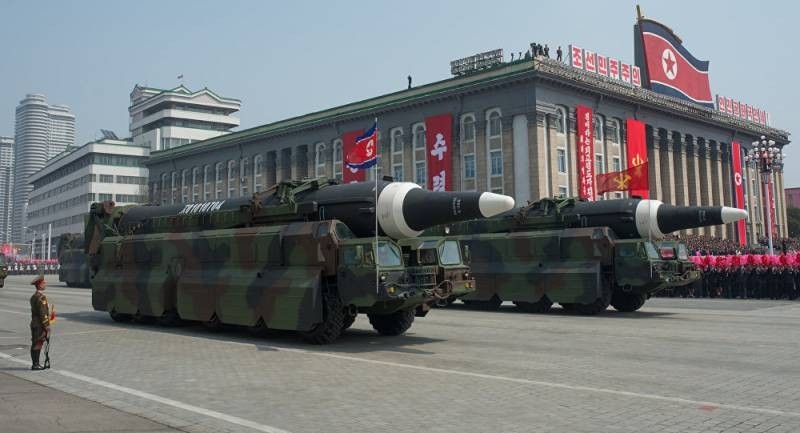
As for the launching pad for missiles, then in their capacity, first of all, Japan and South Korea will perform. These countries are closest to Russia., and to China. Islands, controlled by Japan and South Korea, very convenient for, to place American missiles and service personnel there.
Besides, not excluded, that missiles aimed at China can be deployed in the territories, controlled by Vietnam. A few decades ago, the friendship between Washington and Hanoi after all, what did americans do on vietnamese soil, it was hard to imagine. But historical grievances gradually pass, while political, military and economic interests remain. Vietnam, understanding, that it is difficult for him to resist neighboring China, now interested in American support.
The deployment of American missiles in Vietnam is practically useless to confront Russia, but just right for containing China. And it seems like Hanoi does not offend Moscow either, but makes it clear to Beijing, that jokes with him are bad. true, so far these are only assumptions, since the Vietnamese authorities have not concluded any military agreements with the United States on this matter. However, this possibility cannot be denied..
How China and Russia react
Naturally, that the words of American politicians about the possibility of deploying missiles in East Asia were extremely negatively perceived by official Beijing. China stated, what will take retaliatory measures in case of the appearance of American missiles in the region. The need for a response in Beijing is justified by those risks to regional and international security, which will inevitably follow the deployment of missiles.
In Moscow, US actions are also seen as aimed at undermining the strategic balance that has developed in East Asia.. Particularly concerned in China, and in Russia with the upcoming deployment in South Korea of the high-tech THAAD system, designed to intercept ballistic missiles. In April, Foreign Minister Sergei Lavrov urged the US not to use North Korea's actions as an excuse to increase the US military presence and military power in Northeast Asia..
Placing American THAAD complexes in South Korea will not help achieve denuclearization and protect peace and stability on the peninsula,
- stated in the official statement of the Ministry of Foreign Affairs of the PRC.
China, by itself, will have to urgently increase their own military assistance, develop and launch new missiles into production, if the Americans all decide to deploy their missiles in the immediate vicinity of the Chinese borders.
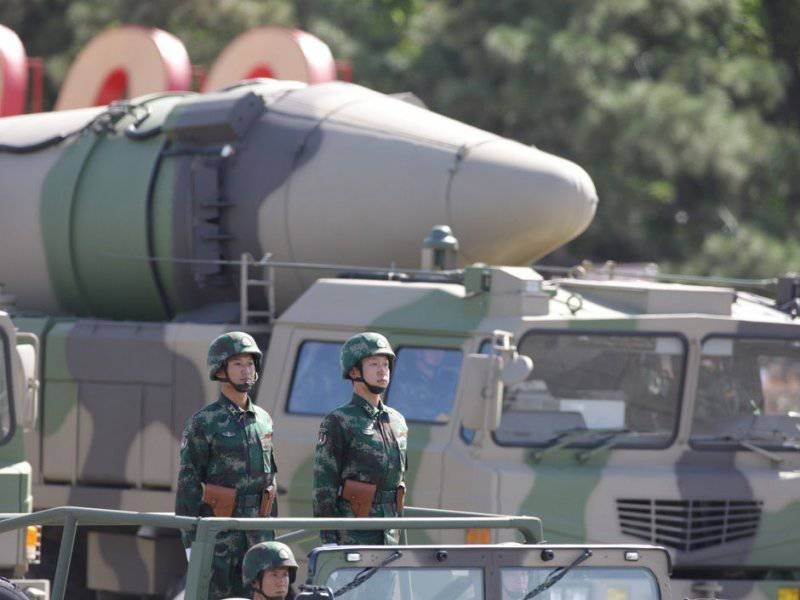

Japan intends to launch military satellites Killer
The North Korean authorities are also calling on South Korea to reconsider its plans for the admission of American missiles into the peninsula.. After all, otherwise, it will hardly be possible to talk about the end of the arms race between the two Koreas..
by the way, do not forget about the population of Japan and South Korea: a significant part of the Japanese and Koreans are very negative about any American military presence on their territory. clear, that countries are highly dependent on the United States, and the Japanese and South Korean elites cannot refuse overseas partners, but this does not make it easier for ordinary residents and they do not want to turn into a target for Russian and Chinese missiles in the event of an arms race. In Japan, and so constantly there are massive demonstrations against the American military presence..
Is an alliance between Russia and China possible??
In fact, the Americans, with their policy in the Asia-Pacific region, are pushing Russia and China to create a full-fledged military alliance. In the event of a further build-up of the American military presence in the region, both states will have no other way out.. Russia and China are already conducting joint military exercises more and more actively.. Russian and Chinese warplanes recently conducted the first joint air patrol in sixty years., which scared Japan very much, and South Korea.
So far, China's nuclear potential is much less significant, than the USA or Russia. And the Chinese authorities understand perfectly well, that alone they cannot yet resist the aggressive American plans in the Asia-Pacific region. Respectively, for China, the creation of a kind of military-political alliance with Russia seems to be a much more profitable goal, than for Russia itself.
Our country should not forget about its own interests, that, even if there is a good partnership with the Middle Kingdom, are by no means identical with the interests of China itself, and in many ways are opposite to them.
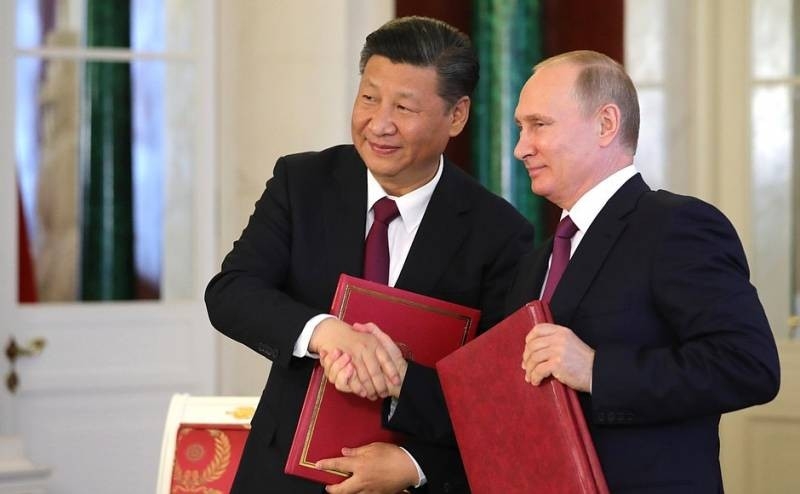
For Beijing, the main thing is to assert its hegemony in the Asia-Pacific region and Central Asia. And if in the south the interests of China conflict with the interests of the United States, supporting Taiwan, Vietnam and the Philippines, then in the north, China competes not only with the United States or Japan, but also with Russia. Chinese ambitions in the Far East, in Transbaikalia and Altai, in Eastern Siberia are no less significant, than in Indochina. And Russia shouldn't forget about this either..
some analysts, however, adhere to the position, that the statements of American officials about the deployment of missiles in East Asia are no more than, than trying to force Russia and China to sign a new treaty on intermediate and shorter-range missiles. The old INF Treaty really outlived its usefulness, what recognized, by the way, and the Russian side. A new agreement could well have been concluded between a large number of participants, Considering, that China has similar missiles today, and India, and in Pakistan.
Ilya Polonsky











